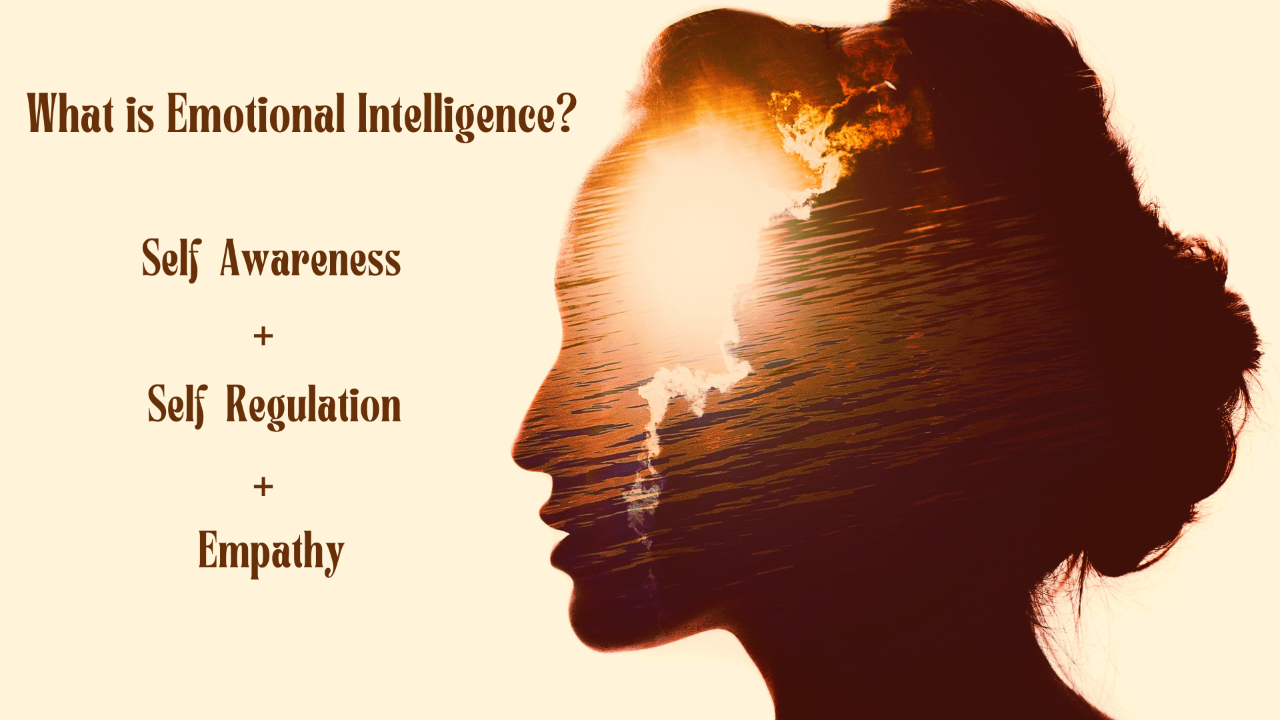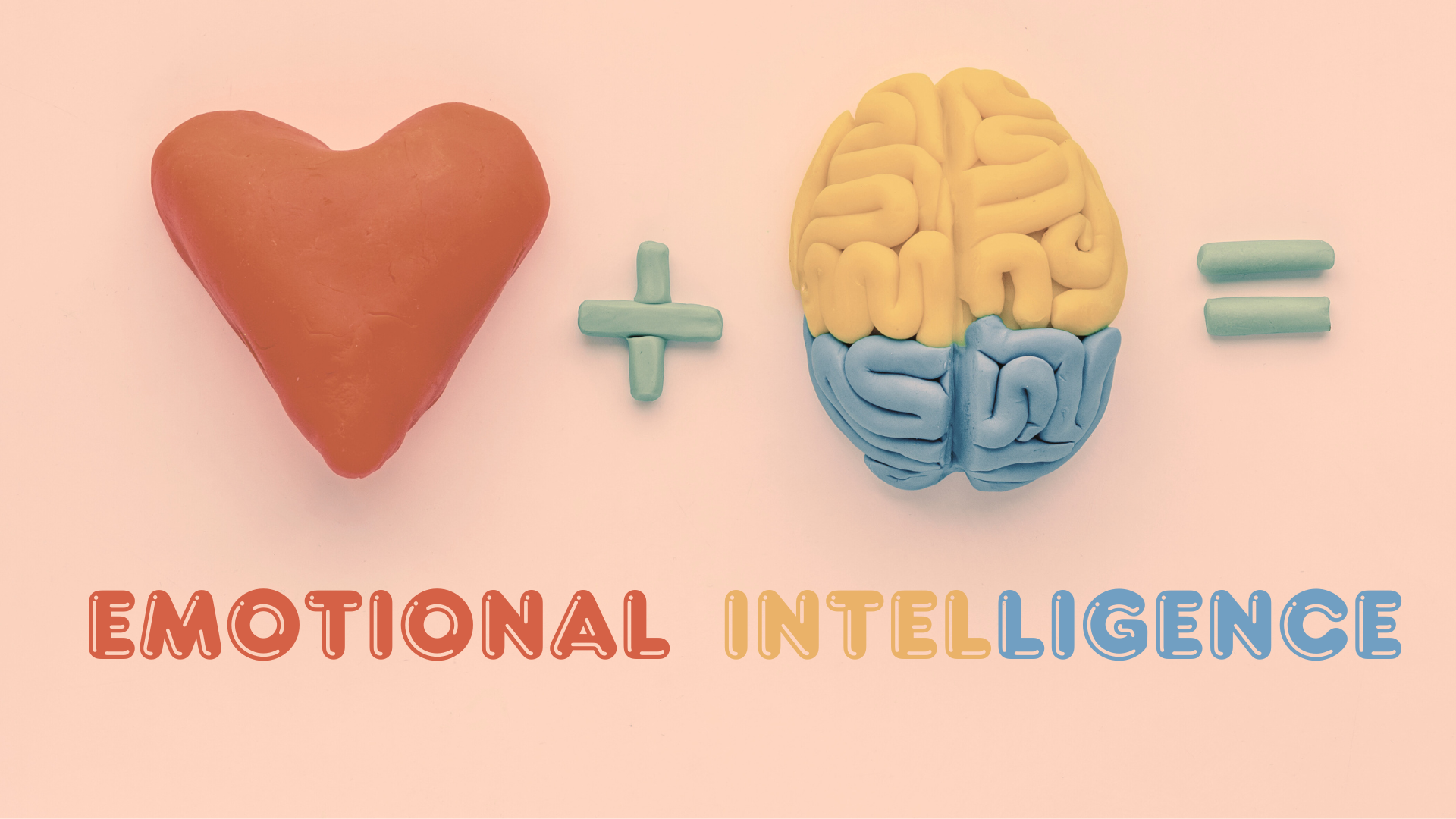What is Emotional Intelligence?

About Emotional Intelligence
As a relationship coach, I often tell my clients that emotional intelligence is one of the most important skills you can develop to create thriving, healthy relationships. But what is emotional intelligence, and why does it matter so much?
At its core, emotional intelligence is the ability to recognize, understand, and manage your own emotions while also being attuned to the emotions of others. It’s not just staying calm under pressure, it’s understanding how your feelings influence your actions and learning to respond thoughtfully instead of reacting impulsively.
Strong emotional intelligence can reduce conflict, deepen your connection with others, and foster an environment where both you and your partner feel understood and supported. Whether in romantic relationships, friendships, or workplace interactions, it’s a skill that can transform how you connect and communicate with others.
So how do you develop this vital skill?
It starts with three key components:
Self-awareness, Self-regulation, & Empathy
Self-Awareness: Recognizing Your Emotions in the Moment
Self-awareness is the foundation of emotional intelligence. It’s the ability to recognize and understand your emotions, thoughts, and behaviors as they arise. This awareness allows you to pause, reflect, and adjust your responses instead of being ruled by emotional reactions.
Example of Self-Awareness in Action
Imagine you’re discussing weekend plans with your partner, and she suggests an activity you don’t enjoy. Instead of calmly expressing your preference, frustration builds. You snap and say, “Why do you always want to do stuff like that? It’s so boring!” Immediately, you see the hurt on her face and regret your words...
If you had practiced self-awareness, you might have noticed your irritation building, a tightness in your chest or a thought like, “I always have to compromise.” Instead of reacting, you could pause, take a breath, and say, “I’m not a big fan of that idea, but maybe we can find something we both enjoy.”
This approach is constructive, honest, and keeps the conversation respectful. It shows your partner that you value their input without dismissing your own feelings.
Self-Regulation: Responding Calmly Instead of Reacting Impulsively
Self-regulation is the ability to manage your emotional reactions, especially in stressful or triggering moments. It’s staying calm and choosing a response that aligns with your values and goals, rather than letting frustration or anger take over.
Example of Self-Regulation in Action
Imagine you come home after a long day at work, drained and exhausted. Your partner immediately brings up a small household issue, like a leaking sink or undone laundry. You feel the urge to snap, “Can’t this wait? I just got home!”
With self-regulation, you pause instead of reacting. You take a deep breath and say, “I’m feeling really overwhelmed right now. Can we talk about this in 15 minutes after I’ve had a chance to decompress?”
This response avoids unnecessary tension, shows respect for your partner, and gives you space to recover. Over time, this approach builds trust because your partner knows you can handle stress with care and thoughtfulness.
Empathy: Connecting with Your Partner’s Perspective
Empathy is the ability to step into someone else’s shoes and understand their emotions, even if their experience is different from yours. You’re not there to fix their problems or emotions, nor do you need to agree with everything they say. The focus is on recognizing their perspective and responding with genuine care and understanding.
Example of Empathy in Action
Let’s say your partner is frustrated about something at home, and you’re tempted to say, “Why can’t you handle this yourself?” Empathy allows you to pause and think, “They must feel overwhelmed right now. How can I respond in a way that supports them?”
Instead of dismissing their feelings, you might say, “That sounds really stressful. Would you prefer some space to process, or would it help if I supported you after I’ve had a chance to decompress from my day?”
This response acknowledges their emotions, shows empathy, and gives them the freedom to decide what they need in the moment, whether it’s immediate help or time to step back.
The Value of Emotional Intelligence
By cultivating self-awareness, self-regulation, and empathy, you establish a solid foundation for enhanced communication and a more profound connection within your relationships. These vital skills have the power to elevate your interactions by fostering constructive communication and strengthen connection.
Fostering Constructive Communication
Rather than reacting defensively or impulsively, you can approach conversations with clarity, patience, and empathy, allowing both you and your partner to express feelings without fear of judgment. When you actively listen and validate your partners emotions, you create a safe space where both parties feel heard and valued. This thoughtful approach not only prevents misunderstandings but also strengthens trust and emotional intimacy, turning conflict into an opportunity for growth and deeper connection.
Strengthening Connection
Responding with thoughtfulness demonstrates a genuine concern for your partner’s emotions, rather than merely focusing on the issue at hand.This approach fosters trust and deepens intimacy over time.
Developing Emotional Intelligence
Developing emotional intelligence is not something that comes easily or instantly. If you find yourself struggling or making mistakes along the way, don’t be too hard on yourself, growth takes time, patience, and consistent effort.
Emotional intelligence isn’t just about intellectual understanding; it requires embodiment, a skill in itself. Practicing these skills in real moments with others can feel challenging at first. However, with perseverance and self-compassion, you’ll begin to notice positive shifts in your interactions. While the journey may take time, the rewards of a deeper, more connected, and supportive relationship, are well worth the investment. Emotional intelligence isn’t just a skill, it’s the foundation of a fulfilling, lasting relationships.
Are you ready to take the first step?
Sign Up for a Connection Call
See how Sex and Relationship Coaching can support you!
Stay connected with news and updates!
Join our mailing list to receive the latest news and updates from our team.
Don't worry, your information will not be shared.
We hate SPAM. We will never sell your information, for any reason.







